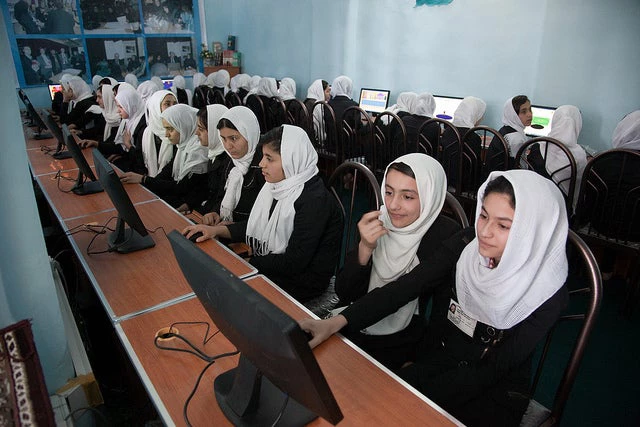Increasingly, there is a curious trend in America in which the country’s wealthiest, best-educated, most tech-savvy parents work hard and pay good money to keep their children away from digital technology. For example, executives at companies like Google and eBay send their children to a Waldorf school where electronic gadgets are banned until the eighth grade. And, Steve Jobs famously told a reporter that he didn’t let his children use iPads: “We limit how much technology our kids use at home”.
What is it that these parents know? And, how should it affect technology policy in education around the world?
I used to work at Microsoft, and for my last five years with the company, I ran a research group in India in which we did many projects to address developing-world education with technology. MultiPoint allowed a single personal computer to be equipped with multiple mice, each with its own uniquely colored cursor so that many children could interact with education software simultaneously. Collage permitted teachers to project imagery and text on a projector without the hassle of PowerPoint. Cloze made it possible to edit educational game content via a simple text file. And on and on. Yet, while all of these projects did well in controlled research studies, they did poorly in actual classroom situations. For the most part, more technology did not contribute to more learning.
There are many reasons.
First, digital technology requires a lot of skill and resources to use and maintain, and the world’s poorest schools generally can’t afford the required support on an ongoing basis. I remember many instances in which a teacher would fumble with the technology for 15-20 minutes before it was operational, which meant that a large portion of class time was lost.
Second, good pedagogy is difficult enough in itself, but when combined with the additional burden of incorporating computers, it is even more difficult. Teachers are already managing a host of constraints – from limited time to large class sizes, from school regulations to standardized curricula. To be asked to involve computers in an effective way on top of that can be a steep challenge.
Third and perhaps most significant, digital devices tend to amplify students’ natural inclinations for distraction. The cognitive candy of high-contrast graphics and sound effects makes all other forms of interaction unappetizing. Students become addicted to sensory stimulation for its own sake and bypass deep thinking and learning. It’s like giving them sweets before dinner.
In fact, rigorous experiments with computers in and outside the classroom show very clearly that they have no educational advantages on average. This was found in Peru with the One Laptop Per Child project, and in California with regular laptops.
Some educational technology proponents argue for gamification, in which all forms of learning are turned into games – video games, of course, when it involves digital tools. But imagine a system in which students go through K-12 learning via video games. Even if they learn the required science and history, they will graduate without knowing how to learn anything not embedded in a game. In other words, they will have not learned the most important lesson of a good education – how to be self-motivated learners who can learn new things on their own.
Shrewd parents intuit these things. They know that there is a big difference between knowing how to use a computer and being a software engineer. Anyone can use a computer – as witnessed by the widespread use of Facebook, even among people with little education. But writing software is challenging and requires a strong foundational education – which above all requires good adult guidance. It is a lot like the difference between knowing how to drive a car (easy, and easy to learn even as an adult) and being an engineer who designs car engines (hard, and requires a good educational foundation).
What is vexing is that the parents who know this best are often the strongest proponents of technology for other people’s children. Even as Steve Jobs kept devices away from his children, his company pushed hard for iPads in schools. It’s a great hypocrisy. At best, these parents provide their own children with the best adult guidance, but suggest that others should be content with flashy toys. At worst, they are selling a solution they don’t believe in for the sake of their own selfish gain.
Either way, it’s a deal that wise educators and policy makers should stay away from.
(Note: None of this is to say that a school shouldn’t have a computer lab or offer computer programming courses. Some interaction with computers is helpful for education in the same way that music or art classes are. It provides enrichment opportunities, and it may inspire students. However, this is very different from providing every child with a gadget that isn’t integrated into a well-supervised curriculum.)
The views & opinions expressed by guest bloggers for Education for Global Development do not necessarily reflect the opinions & views of the World Bank Group.
For more information about education, technology, and innovation, please visit our website and follow @wbedutech and @wbg_education on Twitter.



Join the Conversation